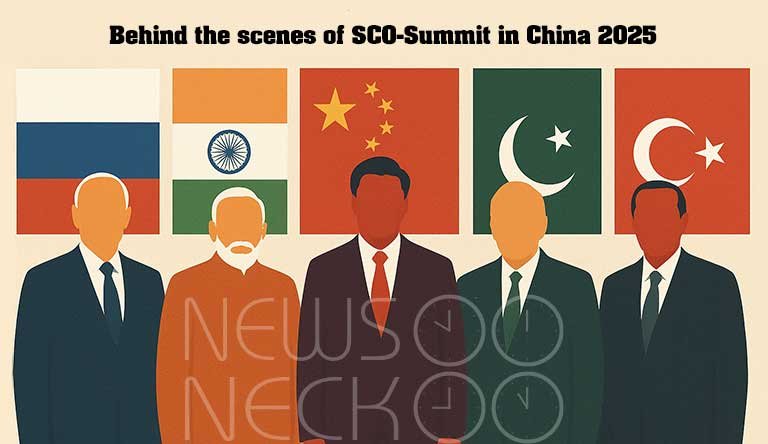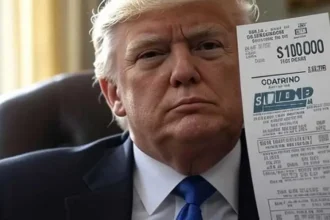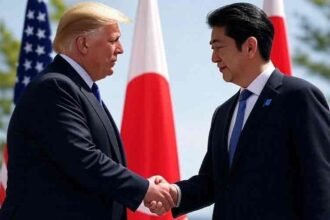The Main Agenda Behind the SCO Summit in China
Introduction
The Shanghai Cooperation Organization (SCO) Summit Tianjin 2025 convened against a backdrop of intense global geopolitical shifts and regional realignments. While the official agenda focused on combating terrorism, separatism, and extremism—priorities that ostensibly unite all member states—the underlying currents revealed a complex web of strategic maneuvering. This summit, attended by 24 countries including powerhouses like Russia, China, India, Pakistan, Iran, and Turkey, became a stage for hidden agendas that could reshape Eurasia’s geopolitical landscape. The SCO Summit Tianjin 2025 exposed deepening fractures and rivalries, from India’s veto against Azerbaijan to Pakistan’s blockade of Armenia, and Russia’s subtle orchestration of these moves. Beyond the rhetoric of cooperation, the hidden agenda involved countering Western influence, managing regional conflicts, and preparing for a potential large-scale confrontation. This article delves into the unreported power plays, economic strategies, and military preparations that defined the summit, offering a comprehensive analysis of what truly transpired behind closed doors in Tianjin.
The Surface: Official Agenda and Participation
SCO Overview and Expansion
The Shanghai Cooperation Organization, established in 2001 with its headquarters in Beijing, has evolved from a regional security bloc into a significant geopolitical platform. Its primary objectives include strengthening mutual trust, enhancing regional security, and combating terrorism, separatism, and extremism . The organization also promotes cooperation in economic, cultural, and technological spheres. The SCO Summit Tianjin 2025 saw the participation of 10 full members, including recent additions like India, Pakistan, and Iran, as well as observer states and dialogue partners such as Turkey, Azerbaijan, and Armenia . This diverse participation underscores the organization’s growing influence in Eurasian affairs.
Official Discussions and Outcomes
Officially, the summit focused on addressing common security threats, with particular emphasis on counterterrorism strategies and stability in Afghanistan. Economic cooperation, especially under China’s Belt and Road Initiative, also featured prominently. The member states reiterated their commitment to the “Shanghai Spirit,” promoting mutual trust, mutual benefit, and non-interference in internal affairs. However, the unanimity displayed in public communiques masked the underlying tensions and strategic calculations that dominated the sidelines.
The Hidden Agendas: Unpacking the Power Plays
India’s Veto Against Azerbaijan: A Proxy Battle
One of the most revealing moments of the SCO Summit Tianjin 2025 was India’s decision to veto Azerbaijan’s bid for full membership. This move was widely interpreted as part of New Delhi’s broader strategy to counter China’s growing influence in the organization and beyond. India, perceiving the SCO as increasingly dominated by China, sought to hinder its expansion, particularly into the South Caucasus—a critical node in China’s Middle Corridor trade initiative . Additionally, India’s veto served as a response to Azerbaijan’s close ties with Pakistan, including its support for Islamabad during India’s Operation Sindoor in May 2025 . This action underscores how bilateral disputes are increasingly playing out in multilateral forums, undermining the SCO’s founding principles.
Pakistan’s Veto Against Armenia: Diplomatic Tit-for-Tat
In a symmetrical move, Pakistan blocked Armenia’s membership bid, highlighting the intricate web of alliances and enmities that characterize the region. Pakistan’s decision was influenced by its strengthening relationship with Azerbaijan and its historical stance on the Nagorno-Karabakh conflict. However, in a surprising development, Pakistan also moved to recognize Armenia as a UN member state, a step aimed at facilitating its own accession to the Eurasian Economic Union (EAEU) . This diplomatic balancing act reveals how countries are leveraging membership bids to achieve broader strategic objectives, often unrelated to the SCO’s core mission.
Russia’s Subtle Orchestration
Despite maintaining a low profile, Russia played a pivotal role behind the scenes. Reports indicate that Moscow encouraged India to veto Azerbaijan’s membership, a move aligned with Russia’s desire to prevent further dilution of its influence within the SCO . By keeping Azerbaijan and Armenia out, Russia aims to maintain its dominance in the South Caucasus and counter Turkey’s growing presence. However, this strategy risks alienating regional partners and accelerating their shift towards other alliances. Russia’s actions at the summit reflect its broader goal of using the SCO to demonstrate that it is not isolated despite Western sanctions and to counter NATO’s expansion.
China’s Expansionist Ambitions
China, as the SCO’s host and primary driver, sought to expand the organization to enhance its economic and strategic reach. Beijing supported both Azerbaijan and Armenia’s memberships, recognizing the South Caucasus’ importance to its Belt and Road Initiative. However, it faced resistance from other members, revealing limitations to its influence. China’s push for a yuan-based payment system within the SCO, aimed at reducing reliance on the US dollar, also encountered skepticism from countries like India . This highlights the challenges of achieving consensus in an increasingly fragmented organization.
The Global Context: Military Buildup and Preparing for Conflict
European Rearmament
The SCO Summit Tianjin 2025 occurred against a backdrop of massive military buildup in Europe. France has ordered its health and hospital sector to prepare for potential crises by March 2026, while increasing its defense budget to 2.9% of GDP. Germany, previously spending €29 billion annually on defense, plans to increase this to €162 billion by 2029, aiming to build the strongest army in Europe. Similarly, Poland, Italy, Spain, and the Baltic states are significantly boosting their military expenditures, with collective European defense spending projected to reach €440 billion. This rearmament suggests that Europe is anticipating a major conflict, possibly with Russia.
Russia’s Defense Posture
Russia, in response, is allocating 40% of its total budget to defense, reflecting its preparedness for a prolonged confrontation with NATO. The ceasefire agreement between Russia and Ukraine, brokered by the US in Alaska, has not alleviated tensions but merely provided a temporary pause. Russia’s participation in the SCO summit was partly aimed at showcasing its strategic partnerships and reinforcing its narrative that it is not isolated. However, the underlying reality is that both sides are actively preparing for a potential large-scale war in 2026, which could be triggered by renewed hostilities in Ukraine or elsewhere.
Economic Factors and Historical Cycles
The trajectory of global events over the past decades—including the 1990 market crash, the 2008 financial crisis, the 2019 COVID-19 pandemic, and the current military buildups—suggests a cyclical pattern of crises culminating in major conflicts. The economic strains caused by these events have exacerbated geopolitical tensions, driving nations to prioritize military preparedness over diplomacy. The SCO Summit Tianjin 2025 thus served as a platform for aligning strategic interests in anticipation of these potential conflicts.
The Implications: Regional and Global Repercussions
For the SCO and Eurasian Geopolitics
The vetoes against Azerbaijan and Armenia have exposed the SCO’s internal divisions and its vulnerability to external geopolitical rivalries. The organization’s expansion, once seen as a means to enhance its global influence, is now stalled by member states’ competing interests. This could weaken the SCO’s credibility and effectiveness, reducing it to a talking shop rather than a decisive action-oriented body. However, it also underscores the organization’s significance in terms of power projection and diplomatic maneuvering.
For the South Caucasus
The exclusion of Azerbaijan and Armenia from the SCO perpetuates the regional divide, with Azerbaijan strengthening its ties with Pakistan and Turkey, while Armenia moves closer to India and Russia. However, the recent peace agreement between Armenia and Azerbaijan, coupled with Pakistan’s decision to recognize Armenia, offers hope for reconciliation and regional integration . The SCO Summit Tianjin 2025 may have accelerated this process by forcing countries to reconsider their diplomatic priorities.
For Global Security
The military buildups in Europe and Russia, combined with the strategic pivots occurring within the SCO, indicate a return to bipolarity, with China and Russia leading one bloc and the US and Europe the other. This alignment increases the risk of a direct confrontation between NATO and the Russia-China axis, potentially triggered by a conflict in the South China Sea, Ukraine, or the South Caucasus. The hidden agenda of the SCO summit was thus not merely about regional security but about preparing for this broader confrontation.
FAQs
1. What was the main outcome of the SCO Summit Tianjin 2025?
The summit officially focused on combating terrorism, separatism, and extremism, but it was marked by India’s veto against Azerbaijan’s membership and Pakistan’s veto against Armenia’s membership. These actions revealed deep-seated geopolitical rivalries and strategic maneuvering among member states.
2. Why did India veto Azerbaijan’s SCO membership?
India vetoed Azerbaijan’s bid to counter China’s influence in the SCO and in response to Azerbaijan’s support for Pakistan during India’s Operation Sindoor. India perceives the SCO as dominated by China and seeks to hinder its expansion into critical regions like the South Caucasus .
3. Why did Pakistan veto Armenia’s membership?
Pakistan blocked Armenia’s membership due to its close ties with Azerbaijan and its historical stance on the Nagorno-Karabakh conflict. However, Pakistan also plans to recognize Armenia as a UN member to facilitate its own accession to the Eurasian Economic Union (EAEU) .
4. What was Russia’s role in the summit?
Russia reportedly encouraged India to veto Azerbaijan’s membership, aiming to prevent further dilution of its influence within the SCO and maintain its dominance in the South Caucasus. Russia also used the summit to showcase its strategic partnerships and counter narratives of its isolation .
5. How does the SCO summit relate to global military buildups?
The summit occurred alongside significant military increases in Europe and Russia, suggesting preparation for a potential large-scale conflict. The strategic alignments and rivalries within the SCO reflect broader global tensions between NATO and the Russia-China axis.
6. What are the long-term implications for the SCO?
The internal divisions and vetoes could weaken the SCO’s credibility and effectiveness, reducing its ability to act cohesively. However, it remains an important platform for diplomatic engagement and power projection in Eurasia.
Conclusion
The SCO Summit Tianjin 2025 revealed that beneath the surface of cooperation and shared security goals lies a complex tapestry of hidden agendas and geopolitical rivalries. The vetoes against Azerbaijan and Armenia, orchestrated by India and Pakistan with Russia’s backing, highlight how bilateral disputes and great power competition are undermining multilateral institutions. Meanwhile, the massive military buildups in Europe and Russia suggest that the world is preparing for a potential conflict that could redefine global alliances. The hidden agenda of the summit was not just about managing regional security but about positioning nations for the coming upheavals. As historical cycles of crises and conflicts continue, the outcomes of such forums will shape the future of international relations in an increasingly polarized world. The SCO Summit Tianjin 2025 may be remembered not for what it achieved officially but for what it revealed about the state of global politics—a world on the brink, where diplomacy often serves as a veil for power struggles.
Author: Muhammad Junaid Arif
Date: 11 sept, 2025
For More updates, Visit Newsneck













